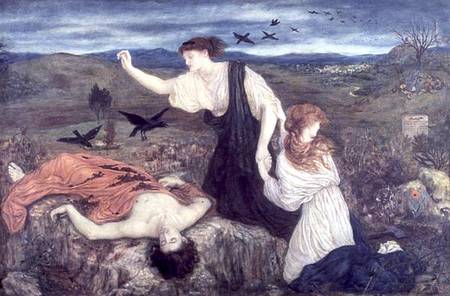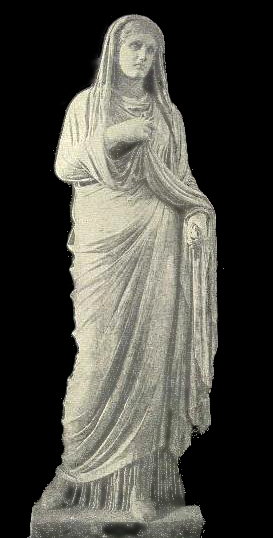so what have i been doing with myself? did i finish finals then collapse in a quivering heap? well, not entirely. i went to italy, as you do, and spent three weeks there on a really awesome dig at the base on vesuvius. i will put the link to the apolline project website on here once i can. maybe some digging photos too, if youre really lucky.
the site itself was a roman bathhouse, possibly as part of a villa complex, although that still remains to be seen. at any rate, the baths were pretty big, so it seems fairly likely that its a villa.
it was constructed shortly after the famous eruption of vesuvius in seventynine ad, according to a recent discovery of some securely dateable brickstamps. this is particularly interesting as it suggests that people moved on to the site shortly after the eruption, regardless of past dangers of worries about the lives that were lost.
the complex was then covered by later eruptions, particularly the fourseventwo event, which is what we were mostly picking through. there was a lot of pickaxing.
so what did we do and find? we opened a test pit to see how far down the fourseventwo event went down. in that particular place, down to eight metres, not entirely representative of the rest of the site... we excavated a well which was next to some of the service rooms and may have been a water outlet rather than a well. we further defined the shape of the buildings, which were well preserved and architecturally very interesting to look at. also cleared the areas of the cocciopesto floors and were able to identify a chronology of events where in the later periods of its use, some of the brickwork was stripped, entrances were changed and the floors were repaired and altered with poorer quality cocciopesto work. theres still a lot more to excavate, parrticularly in the nymphaeum, which was turning up some lovely pottery, stucco and plaster work, some of which was still painted.
the excavation was complicated by an attempted destruction of the site in the nineteeneighties, when the area was used as a municipal rubbish dump. in an attempt to destroy the site a digger was called in and you can actually see the scratch marks in the vault of the caldarium made by the machine. the problem then is that this machine has then mixed ancient and modern contexts in some places, making ancient finds in the area essentially useless. we had to be careful what we were keeping and it seemed like such a waste.
the dig consisted of oxford university students and italian archaeology students from local universities. we all seemed to get along and work together really well, despite not always understanding each other. definitely one id want to go back to too follow its progress.
presently on my way to york for the next dig, vikings romans and medieval at archaeology live. should be good, although im supposed to be supervising, or helping to, a little.
so what did we do and find? we opened a test pit to see how far down the fourseventwo event went down. in that particular place, down to eight metres, not entirely representative of the rest of the site... we excavated a well which was next to some of the service rooms and may have been a water outlet rather than a well. we further defined the shape of the buildings, which were well preserved and architecturally very interesting to look at. also cleared the areas of the cocciopesto floors and were able to identify a chronology of events where in the later periods of its use, some of the brickwork was stripped, entrances were changed and the floors were repaired and altered with poorer quality cocciopesto work. theres still a lot more to excavate, parrticularly in the nymphaeum, which was turning up some lovely pottery, stucco and plaster work, some of which was still painted.
the excavation was complicated by an attempted destruction of the site in the nineteeneighties, when the area was used as a municipal rubbish dump. in an attempt to destroy the site a digger was called in and you can actually see the scratch marks in the vault of the caldarium made by the machine. the problem then is that this machine has then mixed ancient and modern contexts in some places, making ancient finds in the area essentially useless. we had to be careful what we were keeping and it seemed like such a waste.
the dig consisted of oxford university students and italian archaeology students from local universities. we all seemed to get along and work together really well, despite not always understanding each other. definitely one id want to go back to too follow its progress.
presently on my way to york for the next dig, vikings romans and medieval at archaeology live. should be good, although im supposed to be supervising, or helping to, a little.











